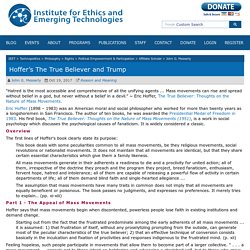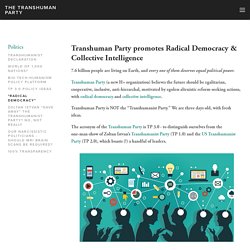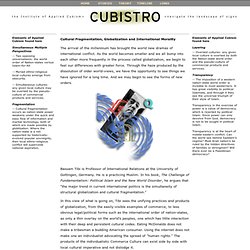

Karmic Economics: Economy from perspective of Karma – Vedic Management Center. Exclusive to Vedic Management Centre by U.

Mahesh Prabhu Economics is an important part of our lives – whether we understand it or not, it plays a crucial role in the way we live, perceive as well as work. Personal or professional, our lives are always affected, directly or indirectly, by significant economic initiatives and programs run by governments around the world. As a “global village”, governments are more concerned about economic consequences than military ones. This is the reason why we haven’t had a world war since the dawn of a globalized economy. Today, the concept of power has more to do with economic acceptance and success than military ones.
We see economists increasingly growing into one of the most revered as well as feared professionals. Less than one per cent of the global population invests in stock exchanges around the world, yet when one market falls on its indices, other stock markets miles away follow suit. Interestingly, the Law of Karma doesn’t believe in luck. Hoffer’s The True Believer and Trump. “Hatred is the most accessible and comprehensive of all the unifying agents ...

Mass movements can rise and spread without belief in a god, but never without a belief in a devil.” ~ Eric Hoffer, The True Believer: Thoughts on the Nature of Mass Movements. Eric Hoffer (1898 – 1983) was an American moral and social philosopher who worked for more than twenty years as a longshoremen in San Francisco. The author of ten books, he was awarded the Presidential Medal of Freedom in 1983. "Radical Democracy" — The Transhuman Party. Our Transhuman Party (TP 3.0) loathes autocracy, one-person rule, highly-centralized power.

We deplore the dictators, tyrants, “strong men” and narcissists seeking celebrity status that stain humanity’s history and the present political landscape. TP 3.0 will be publishing essays at its website in October 2017 that describe radical democracy that utilizes multiple intelligences. Many essays will be anonymous or signed by many, indicating collective authorship. TP 3.0 will explore societies and revolutions that successfully shared control, and future utopian ideas, aided by technology. Destiny - Wyrd/Urd - Norse Mythology for Smart People. One of the key concepts of the worldview of the pre-Christian Norse and other Germanic peoples was their intriguing and extraordinarily unique view of destiny (Old Norse Urðr or Örlög, Old English Wyrd, Old Saxon Wurd, Old High German Wurt, Proto-Germanic *Wurðiz[1]).

It shares the same Indo-European origin as the Greek concept of fate and the Hindu concept of karma, but is as different from fate or karma as either of those concepts are from each other. Due to this uniqueness, it’s also one of the hardest parts of the indigenous Germanic worldview for modern people to understand. However, the rewards of understanding this concept are well worth the effort. Cyberlibertarians’ Digital Deletion of the Left. Technological innovation does not inherently promote the Left’s goals.

Fidelis / Flickr The digital revolution, we are told everywhere today, produces democracy. Code your own utopia: Meet Ethereum, Bitcoin's most ambitious successor. The IRS issued a telling statement of metaphysics in March.

A few weeks before tax day, it ruled that bitcoin, the first and best-known Internet-based cryptocurrency, is not to be considered a currency at all but an investment, subject to capital-gains tax. While this is a rather clumsy adaptation of antiquated regulations to a field they were never designed to encompass, there is also a basic truth in it. The IRS decision hints at why cryptocurrencies are about to get a whole lot more disruptive as well as a great deal harder to ignore: They can be used for much more than just payments.
Bitcoin appeared in early 2009 as a new kind of money that, thanks to sophisticated mathematics, guarantees the security of transactions within a decentralized, peer-to-peer network. Just a few months into a catastrophic financial crisis, the pseudonymous inventor, Satoshi Nakamoto, presented bitcoin as an insurgency against the mismanaged big banks and state monetary regimes. The Economics of Star Trek — Medium, Long. I promise this is about Star Trek.

Sort of. Bear with me a moment. I’ve been reading a lot about robots lately. Introduction to Principia Cybernetica. Cubistro. Cultural Fragmentation, Globalization and International Morality.

PopCulture. Creation of Direct Democracy in Switzerland « Activating Democracy. The people are no longer willing to be governed from above; they demand their share in the making of laws and the exercise of power (…) they demand that self-government finally means what it says,

Pirate Party. History[edit] The first Pirate Party to be established was the Pirate Party of Sweden (Swedish: Piratpartiet), whose website was launched on 1 January 2006 by Rick Falkvinge.

Falkvinge was inspired to found the party after he found that Swedish politicians were generally unresponsive to Sweden's debate over changes to copyright law in 2005.[2] The United States Pirate Party was founded on 6 June 2006 by University of Georgia graduate student Brent Allison. The party's concerns were abolishing the Digital Millennium Copyright Act, reducing the length of copyrights from 95 years after publication or 70 years after the author's death to 14 years, and the expiry of patents that do not result in significant progress after four years, as opposed to 20 years. Peaceful Societies. Hikikomori. Complementarity & Reality. Articles Alistair MacFarlane has complementary ways of looking at things. Neo-Luddism.